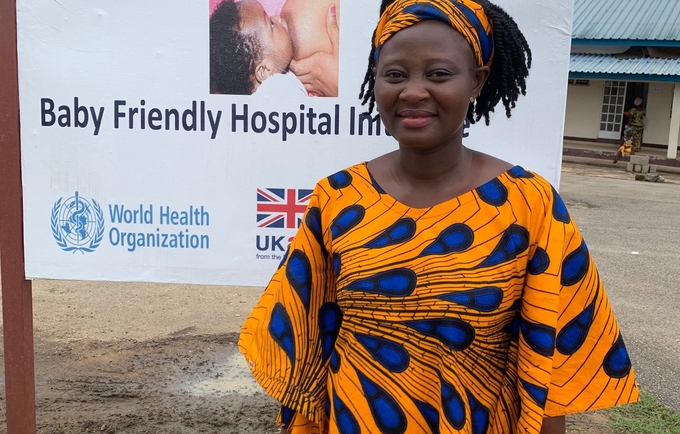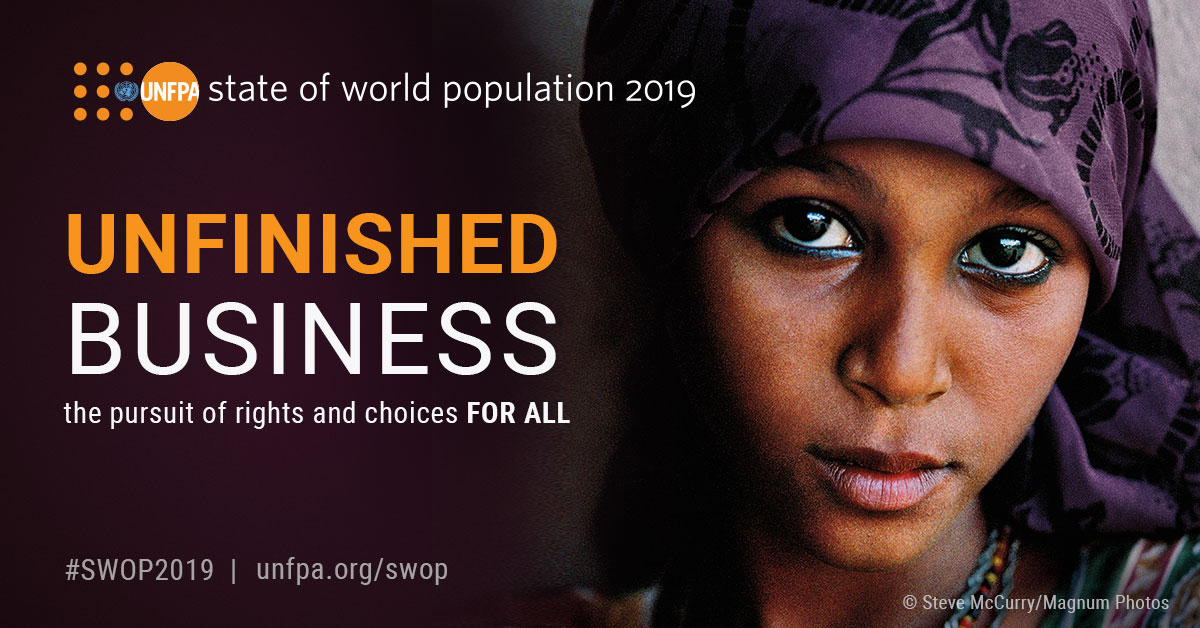MAKENI, Sierra Leone, 1 October 2019 - A shortage of qualified professional health staff and limited capacities in training institutions are identified as key challenges in the health sector in Sierra Leone. In 2008, only 10 surgeons were working in the public sector to serve a population of 5.7 million. The limited availability of surgical services in the country for the last few decades, means that an estimated 25 percent of the population has an untreated surgical condition needing attention, whilst 25 percent of deaths were associated with a surgical condition that might have benefited from surgical care.
In cooperation with the Ministry of Health and Sanitation, and with funds from UK aid and technical support from UNFPA, Capacare – a non-governmental organisation - is currently training medical doctors and community health officers to perform basic life-saving surgery at district hospital level. The two-year postgraduate programme hopes to contribute to addressing the unmet need for accessible and affordable surgical care within a short time-frame.
Seibatu Kemoh’s story
One such person to benefit from the training was Seibatu Kemoh, a surgical community health officer based at Bo Hospital. “It was because of my passion for obstetrics and because I wanted to save lives, that I decided to register for the Surgical Training Programme run by CapaCare and supported by UNFPA,” explained Seibatu.
Seibatu started her career as a community health officer in Mgalu community health centre, a remote area in Bo District, after graduating in 2010 from Njala University in community health studies. During her four years working in Mgalu, offering women ante and post-natal care and assisting with deliveries, she became frustrated with maternal deaths arising from obstetric complications that could have been prevented with better resources and improved knowledge and skills.
Whilst Seibatu was working at the community health centre, a colleague who was already registered on the Surgical Training Programme, recommended that Seibatu apply for the course. In May 2014 she became one of only four female students to enroll on the course since its inception in 2011. Since the programme started in 2011, there have been forty-four graduates, four women and forty men.
Training
Capacare´s Surgical Training Programme funded by UK aid, enables students to handle the most common surgical and obstetrical emergencies that, without treatment, would lead to disability or death. The training curriculum follows the Integrated Management of Emergency and Essential Surgical Care as recommended by the World Health Organization. UNFPA provides support to Capacare with the training of community health officers on the Surgical Training Programme and medical doctors in basic surgical and obstetrical skills. UNFPA also engages surgical providers in continuous professional development, conducts monitoring and supervision on surgical and obstetrical activities, and supports the deployment and graduation of Surgical Training Programme trainees.
All candidates in Sierra Leone are initially trained for six-nine months at the Masanga Hospital in Tonkolili district. During this period, students are supervised by resident surgeons and attend a series of training modules by visiting national and international trainers. Upon completing the initial training, students are posted on six-month rotations to a number of partner hospitals in Sierra Leone. This ensures that they get sufficient exposure and supervision by highly skilled tutors. After two years of training, students must pass final exams and for community health officers, the training is followed by a one-year surgical and obstetrical placement.
Challenges and successes
Seibatu completed her first six months training at Masanga Hospital learning basic surgical skills, followed by eight months surgical rotation at Magbence Hospital in Makeni, and eight months at St John of God Hospital, Lunsar, in Port Loko district.
Seibatu graduated in 2017 despite many challenges, including the Ebola outbreak which interrupted her training for six months. But her biggest challenge came in the form of resistance from doctors who believed that surgery should only be performed by medical doctors or surgeons, and ideally only by men. Seibatu had to prove that, as a woman and as a surgical community health officer, she was proficient in her surgical and obstetrical duties. She has achieved this by performing many successful surgeries including hernia operations, appendectomies, and caesarean sections over the past two years.
Seibatu has been working in Bo Hospital since January 2018, and says that in her first year and a half as a surgical community health officer, she has saved many lives. Remembering one case in particular, a young woman with a ruptured ectopic pregnancy, who lost more than a litre of blood and went into shock, Seibatu said, “I had five minutes to react and save her life. It is these success stories that keep me going through the difficult times.”
***
For more information, please contact:
Angelique Reid, UNFPA Sierra Leone, Communications Specialist
Tel: +232 78340044 - Email: areid@unfpa.org



